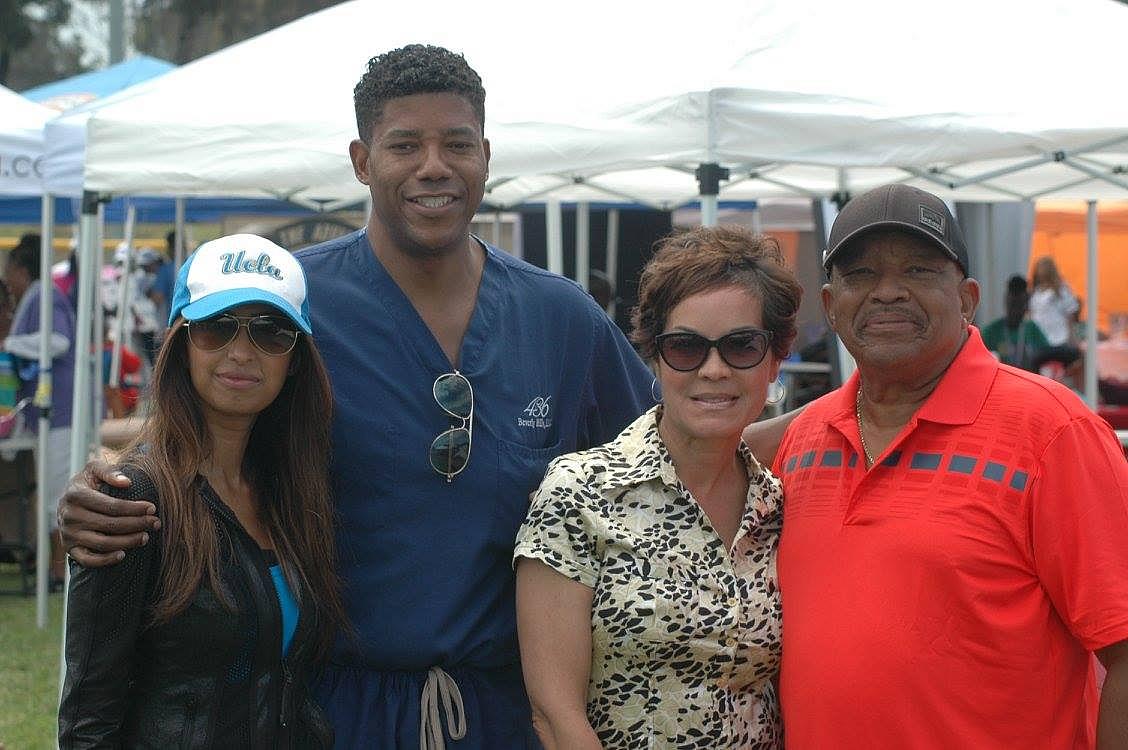African-Americans face higher colon cancer risk, less likely to be screened
Avishay Artsy reported this story, on African-Americans and colon cancer, as a 2015 California Health Journalism Fellow at the University of Southern California’s Annenberg School of Journalism.
Other stories in the series include:
The stigma of colonoscopies and African-American risk of colon cancer (Part 1)
Why African-Americans are at a greater risk of colon cancer (Part 2)
How to reduce the disparities in colon cancer outcomes (Part 3)

Every year, 140,000 Americans are diagnosed with colon cancer, and more than 50,000 die from it. It’s the third leading cause of cancer-related deaths. But among those tens of thousands who are suffering, African-Americans are especially vulnerable.
“African-Americans are more likely to get colon cancer, they’re more likely to have an advanced stage of disease when they’re diagnosed with colon cancer,” says Dr. Fola May, a gastroenterologist at UCLA. “They’re more likely to die from colon cancer.”
May is co-author of a recent study that looked at the records of Californians between 40 and 80 years old who have a parent, sibling, or child that’s had colon cancer. That population is at higher risk of developing colon cancer themselves. But of that group, only three out of five had been screened for colon cancer themselves.
Dr. Brennan Spiegel, senior author of the study and director of health services at Cedars Sinai in Los Angeles, said this finding revealed “a big problem.” The findings grew more sobering from there.
“(W)hen we drilled down into that group and looked at racial and ethnic disparities, we found that African-Americans were 71 percent less likely to get screened than white Californians,” he said. “So, this is an even bigger indictment.”
Colon cancer screening is especially beneficial, because benign lesions can be found and removed, preventing cancer from having a chance to develop.
You might think that close relatives of colon cancer patients would want to be screened. But take the case of the family of Cordell Harper, a 67-year-old African-American man. Fourteen years ago he was diagnosed with colon cancer. He underwent surgery and chemotherapy.
Harper has three brothers. They all refuse to get colonoscopies.
“So, if having a brother get colon cancer doesn’t make you want to get a colonoscopy, what will?” he asks, with a laugh. “Having issues, you know, and it may be too late then.”
Harper’s brothers are all over 50. That’s the age many national organizations recommend people begin colon cancer screening. But those with a family history should start sooner. Part of the reason Harper’s brothers won’t get screened has to do with the stigma of having a colonoscopy, which involves threading a flexible tube, called a colonoscope, through the rectum and into the colon. Dr. Fola May says that’s a common concern.
“Men in our focus group study and men in other studies have said, ‘I do not want any sort of procedure where I have to have any sort of instrument that’s placed into my behind,’ ” May said. “That was a persistent theme throughout our … studies.”
That was the case with Michael Stennis, who died of colon cancer in 2003. I met his wife, Erin Stennis, at a “Relay for Life” cancer event in Los Angeles this summer. After he found blood in his stool, a gastroenterologist told him to get a colonoscopy.
“When he found out what a colonoscopy was, he said no one was going to do that to him,” Erin Stennis told me. “So he literally sucked up the pain for about six years, and it got to the point where I found him one day hunched over in a closet in our home.”
Her husband was soon diagnosed with stage four colon cancer. He lived just two more years. During that time, the couple talked to everyone they could, going to churches and other groups, to try to raise awareness of colon cancer among African Americans.
“I think it’s a message that we need to get out, especially to the African-American community,” Erin Stennis said, “that by going and having a colonoscopy, you lessen the chances of being diagnosed with this. It’s getting over the stigma attached to colonoscopy and what the procedure entails.”
But the low screening rates are due to more than stigma. In another study, Spiegel and his colleagues, found that part of the responsibility may rest with doctors.
“We found that African-Americans were more likely to say that their doctor never recommended a colonoscopy or any kind of colon cancer screening than any other racial and ethnic groups,” Dr. Spiegel said.
Dr. Spiegel says that’s a big failure at the provider level. A nudge from the doctor could make a big difference.
“We found that when doctors do recommend screening, it increases the chances of getting screened by nearly twofold,” Dr. Spiegel said.
Dr. Spiegel’s team is planning a follow-up study to see if the Affordable Care Act, which fully covers preventive tests like colonoscopies, will make any dent in the racial disparity of colon cancer outcomes.
[This story was originally published by the KQED News.]

